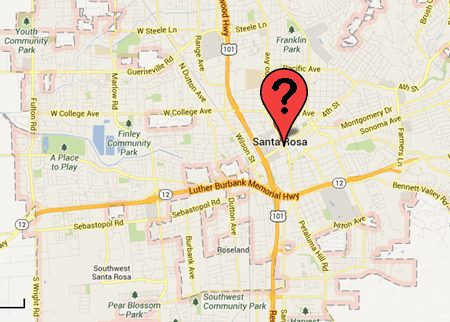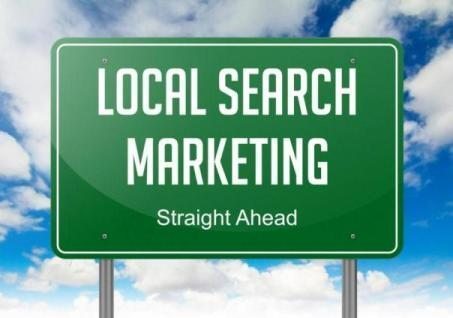Santa Rosa SEO Guide Helps Local Business Understand Search

Prepared by Santa Rosa SEO Company and Marketing Consultant
The purpose of this article is to help business owners understand SEO. Please note that this guide focuses on Google when discussing search engine optimization.
While Bing and Yahoo are also familiar names, Google now dominates with 92% of the search market.
There was a time when local business owners didn’t have to guess about lead generation. You simply placed an ad in the Santa Rosa area yellow pages—or maybe the Press Democrat—and that was it. You knew you would get at least some customers—maybe lots of them.
How times have changed! Today, the yellow pages are all but extinct, and local newspapers—particularly small community publications with affordable advertising—struggle to remain viable.
Why Santa Rosa SEO and Search Engine Optimization Matters

SEO search engine optimization can put your business on the map for Santa Rosa. It’s become a necessity.
But online lead generation hasn’t just changed the way small business owners advertise…
It has actually created a confusing maze with ever-changing rules!
Most business owners don’t have the time, expertise or interest to master the complexities of Internet marketing.
This means you must rely on the help of others, for advice and/or to help drive traffic to your website. Assuming you’re paying for that help, you should know enough to ask good questions and make good business decisions so you get a better return on your investment. The viability of your business may depend on it.
This Guide is for Local Small Business Owners
This guide is written specifically for small business owners with a limited geographic market. If you’re seeking customers within your neighborhood, zip code, city or county, this guide is for you. It is written as a general introduction to local search, and will help you:
- Gain a basic working knowledge of local search, including terms and key distinctions.
- Speak intelligently about local search so you can effectively manage providers, such as website designers, advertising companies and Internet marketers.
- Be realistic about your expectations. Know what’s possible and what isn’t based on your objectives and the level of budget you are prepared to spend on SEO agency services.
- Make more informed decisions when selecting a provider or evaluating proposals related to your website and search engine marketing.
Without this information, you are more likely to make blind decisions, waste your money or–worse–get no website traffic.
Your Chances of Appearing on Page 1 of Search Results

What does it take to make it to page 1? That depends on a lot of factors, and it is really the point of this guide–helping you understand what helps or hurts your chances of getting there.
With only 10-12 local businesses listed on Page 1 of Google, it matters a great deal. Statistics show that 88% of people never look past the first page of search results, so making page 2 or beyond is of questionable value.
The general answer is that it is not easy–and you should understand this up front. Simply putting up a website does little or nothing to earn you page 1 position.
In fact, even with search engine optimization, reaching page 1 can be a challenge. And, once a site makes page 1, there’s no guarantee that it will stay there. The Internet is dynamic, so conditions are constantly changing–meaning that search results vary as the conditions driving them change.
However, someone’s site is going to make it to page 1 for a particular keyword. And there are things we can do–as SEO professional and client–to increase your chances that you will reach this coveted spot.
Search Engines 101: The Basics
Let’s review some basics of what a search engine is and how it works. Search engines are programs that send robotic probes to sift through the billions of pages on the Internet.

When you enter a keyword, Google attempts to match your keyword with its stored information.
Then Google displays what it considers to be the most relevant links to match the keywords .
First, see the SEO Term Glossary (right column this page) for some commonly used words in search engine marketing.
What Exactly is “Local Search?”
Local search is similar to “regular” Internet search, but applies when the searcher is seeking a result for his/her geographic area. It uses the same search engines and keyword entry, but uses a local identifier along with the main content keywords to narrow the results to local information. For example, instead of entering “plumber” or “web designer,” you might enter “plumber 95404” or “web designer santa rosa.”
Search engines now try to anticipate the searcher’s intent and display localized content. However, the results are not nearly as specific as when the searcher uses a specific local identifier with his/her keywords. Local businesses should use local identifiers for best results, and I believe most searchers are catching on to this technique as well.
Understanding how to “localize” content on your website increases the chances that it will turn up during someone’s search for local information.
Search Engine Optimization: Understanding The Challenges

Before discussing specific SEO strategies, you should know that the field of SEO has become so complex and specialized that mastering it requires almost full-time pursuit.
As a Santa Rosa SEO agency consultant interested in helping clients get local traffic, I have learned a lot about local search in Sonoma County.
On the national scene, there are people who charge tens or even hundreds of thousands of dollars advising large companies on how to achieve high rankings in keyword searches. Some are well worth what they charge.
That said, it’s difficult for anyone to know with absolute certainty what it takes for a particular business to get its website on page 1 of Google–at least not without considerable research and testing. Here’s why:
- Google does not make its algorithms known (formulas for the set of rules for how it indexes websites and displays search results). We can only guess.
- The rules are constantly changing. Google is famous for periodically changing its algorithms–often substantially–as it seeks to provide better results for searchers. What works today may not work tomorrow.
- The Internet is dynamic. The pages, links and content that make up the landscape of the Internet change by the minute. Search is like a moving target.
SEO Term Glossary
Search Engine Optimization (SEO)-
Keyword-
Search Engine Marketing– the process of gaining traffic and visibility from search engines through both paid and unpaid efforts.
Search Engine Results Page (SERP)–
Organic Search-
Paid Search-
Local Search-
On-Site (or On-Page) SEO-
Off-
